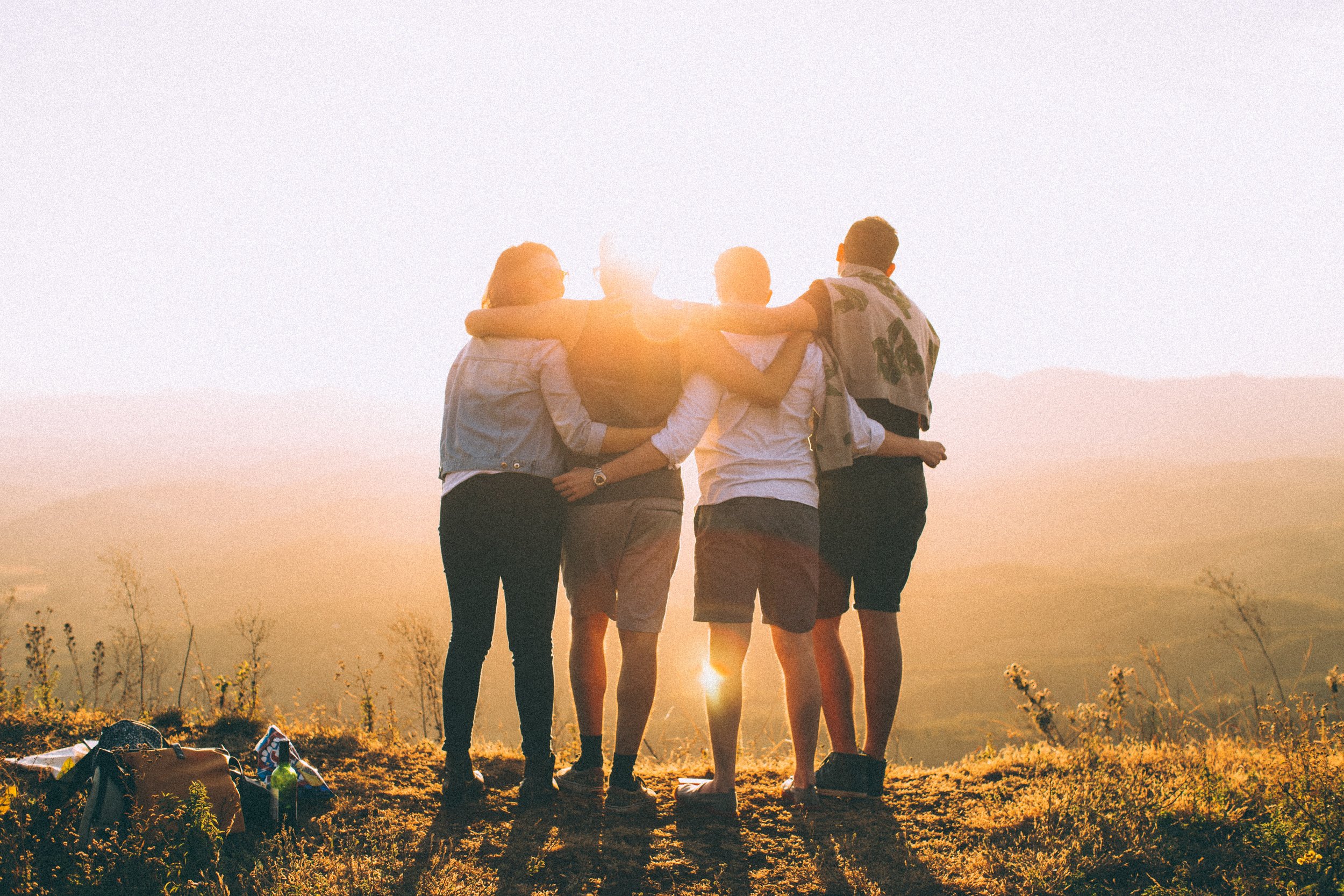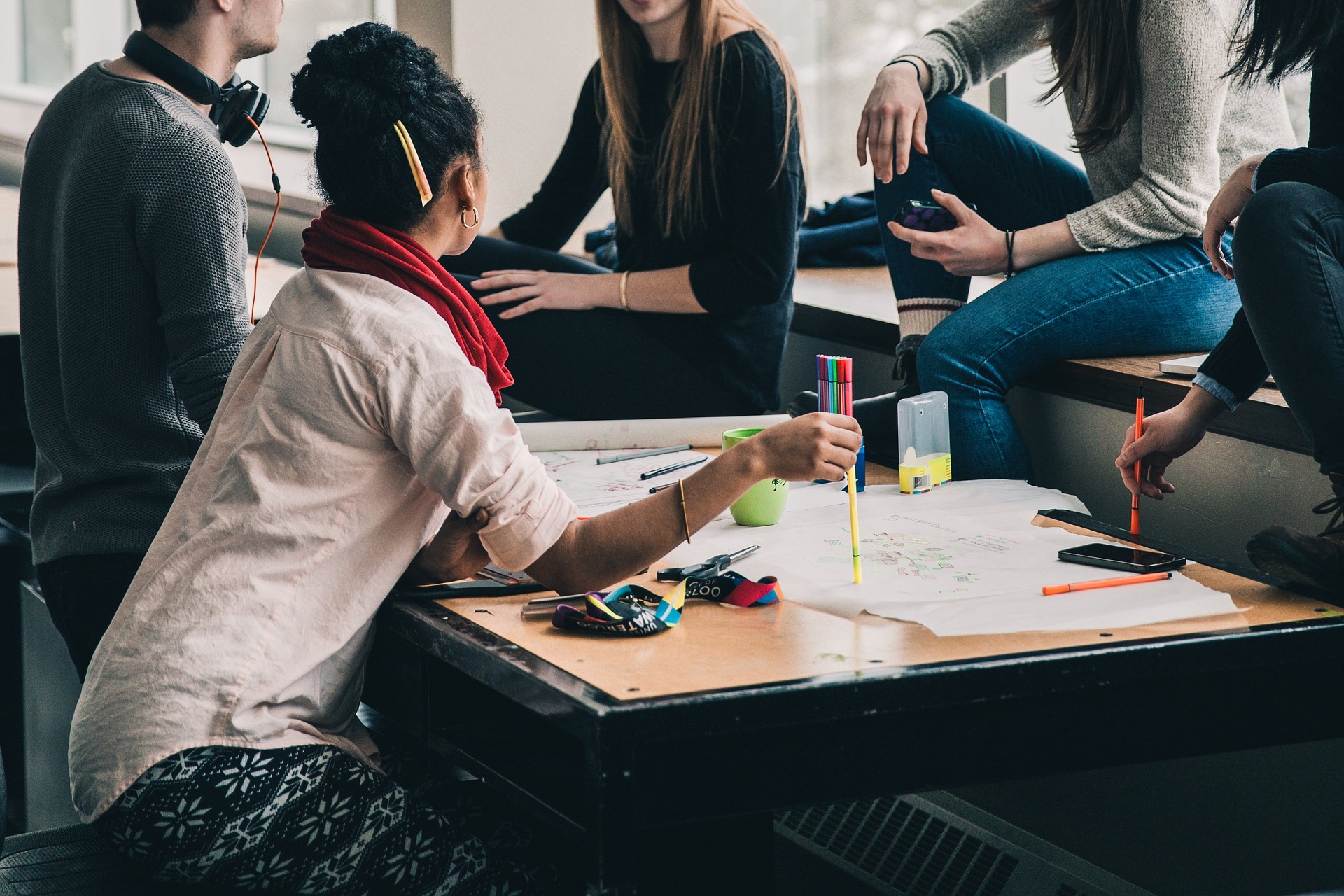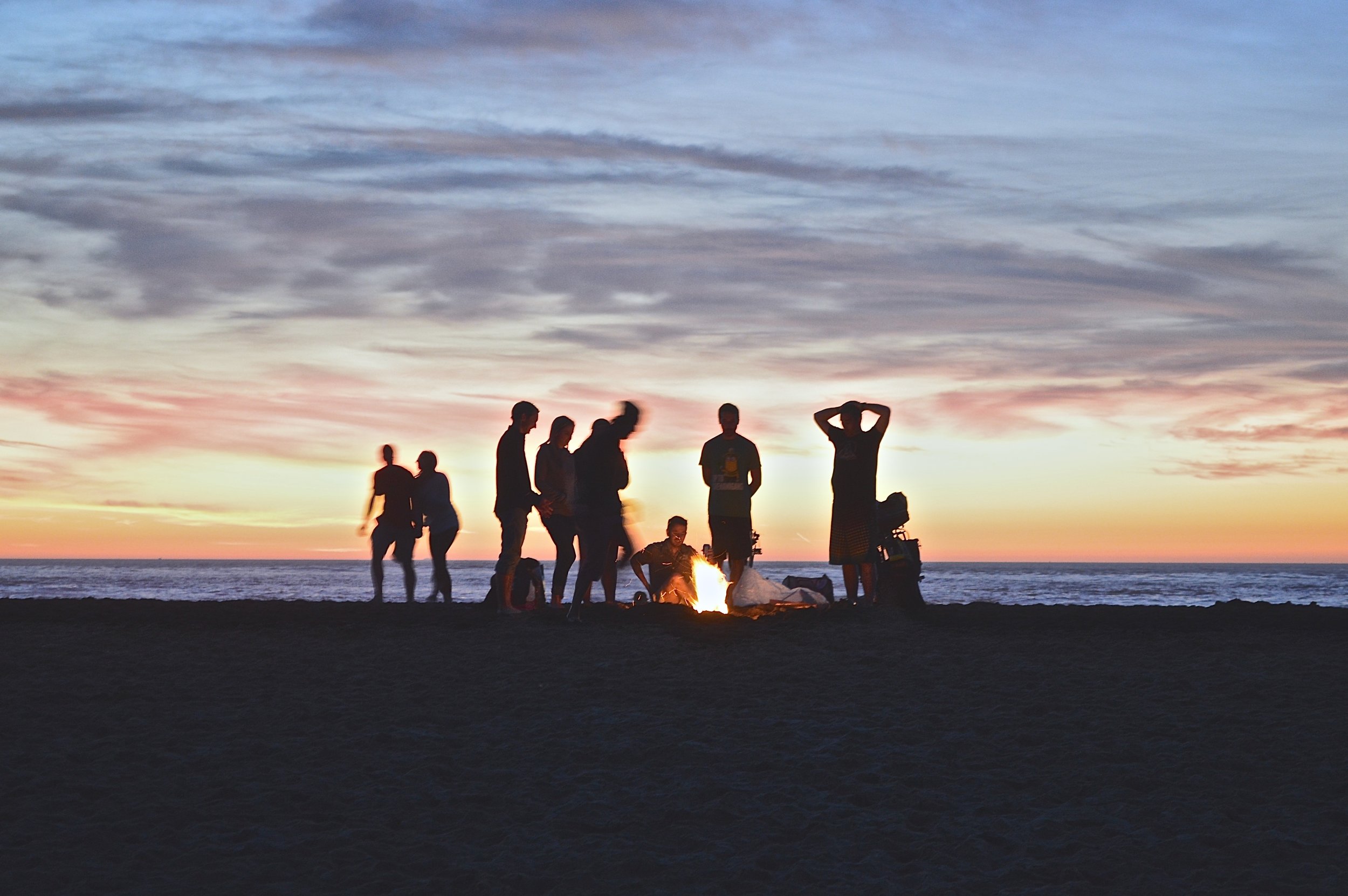
Confessions: I am Vulnerable in Friendships
Dear Julia,
Whether you are studying abroad, moving to a new place, or just traveling around, you will most likely find that one of the most important factors to having a good trip will be the relationships you make with other people. However, it is not always easy to invest in general acquaintances, and friendships can be even more difficult, especially if you have language or cultural barriers. And, even if you find someone with the same background as you, it is no guarantee that you will hit it off.
 There are so many different factors that we can consider when it comes to making friends but, as I will be moving abroad tomorrow, I have been thinking about one thing that I find incredibly important when making friends: being vulnerable. However, it is not always easy to expose your weaknesses (especially with people that you don’t really know). In fact, I wouldn’t be surprised if you initially rejected the idea of being vulnerable in any sort of relationship—it isn’t easy! At the same time, I want to share my top three reasons for why it can be extremely beneficial:
There are so many different factors that we can consider when it comes to making friends but, as I will be moving abroad tomorrow, I have been thinking about one thing that I find incredibly important when making friends: being vulnerable. However, it is not always easy to expose your weaknesses (especially with people that you don’t really know). In fact, I wouldn’t be surprised if you initially rejected the idea of being vulnerable in any sort of relationship—it isn’t easy! At the same time, I want to share my top three reasons for why it can be extremely beneficial:
Being willing to put yourself out there…to help you make friends
This is probably número uno on my list of why it is important to be vulnerable in friendships but it is also one of the hardest to accept as well. By putting yourself out there you are way more likely to be rejected (both when you want to make new friends and when you want to hang out with old ones). I am the first one to admit that rejection hurts and that I have been known not to ask someone—or a group—to do something because I am afraid that they will say no. However, I am also working to understand that when I receive such a rejection it probably doesn’t mean as much to the other(s) as I think it does.
At the same time, this vulnerability can also give you the power to understand where you stand with people you meet and help you develop relationships. That is, you will figure out pretty quickly whether or not the other person is willing to make an effort with you or not. In addition, by showing your own vulnerability, on some level you are letting the other person off the hook when it comes to showing his/hers. Overall, I truly believe that putting yourself out there is one of the only ways you will be able connect with people around you and, oftentimes, rejection is just part of the deal without really being a big thing (especially in a culture like the one in Spain).
Remember: If you are willing to put yourself out there, it means that the other person doesn’t have to and they are probably as reluctant as you are to being vulnerable.
Accepting when you mean different things to each other
Although it isn’t something I find necessary to do often, when I look into the friendships I have with people, I realize two different things: 1) what I mean to different people is not always the same (and vice-versa) and 2) that the role someone has in my life doesn’t necessarily correspond to my role in theirs. Let me explain:
 1.) The relationship I have with my current boss is fantastic—we get along well and are able to get large amounts of work done in an efficient way. On the same level, working with friends of mine in an association, I find myself working efficiently with people who are my friends and people who I really enjoying spending time with. However, despite the fact that I both like and work well with these two different people, I don’t mean the same thing to them (and they don’t mean the same thing to me). That is, one is still my boss—albeit being a bit of a friend—and the others are friends—even if they have a little bit of colleague mixed in.
1.) The relationship I have with my current boss is fantastic—we get along well and are able to get large amounts of work done in an efficient way. On the same level, working with friends of mine in an association, I find myself working efficiently with people who are my friends and people who I really enjoying spending time with. However, despite the fact that I both like and work well with these two different people, I don’t mean the same thing to them (and they don’t mean the same thing to me). That is, one is still my boss—albeit being a bit of a friend—and the others are friends—even if they have a little bit of colleague mixed in.
2.) I am assuming I am not alone on this, but I have some friends who mean the world to me, people who I would do anything for, and others who have a little bit less impact in my life. There is nothing wrong with either of these two scenarios, just that they are different types of relationships (although I also believe that it is possible to adapt and change the same friendship over time). But what happens when someone is really important to you, but you are just a normal friend to them? In the long run, I’m pretty sure it’s normal and not a big deal, but it doesn’t always feel like that.
For me, this means I need to work towards understanding that at the end of the day, all different types of people mean different things to us, and we play different roles in their lives too. One of the biggest steps to being vulnerable in relationships is accepting these differences and allowing them to be part of life, even when we don’t really like them. And, every once in a while, you will find someone who is on the same wavelength as you (even just for a moment or two). These are the friends or the romantic partners that make you feel just right, people who allow you to fit into their lives the same way that they fit into yours.
Remember: We all see the world through our own colored glasses.
Understanding how equal can also mean different
At the same time I honestly don’t believe that any relationship is perfectly equal in the sense of sameness. Instead, the beauty is in the differences and the acceptance that two people in a true friendship understand that the relationship is fair because, at the end of the day, everything balances out. For example, with my closest friends I never question paying for dinner one night because I know that they will cover me in another moment (or, if they are not totally financially stable, maybe make me dinner sometime). Dani and I even switch off paying every time we meet and, while the numbers might not equal out to zero, that is balance enough for us. I understand that money might be the least of your worries, but for someone else it might be really important. And, if you are going to make the friendship work, you will have to work around this issue together. Don’t expect sameness from both sides, but look for equality in the relationship (aka, don’t get to the point where you resent him or her because you feel like you ‘do more’). And this mentality can be applied to mostly everything—things from emotional support to cooking and cleaning (especially if you live together) can be put in balance without being perfectly the same.
 Being vulnerable in these situations means two things. Firstly, that you are willing to accept that the other person will have expectations of your relationship, just like you do. And, secondly, that you have to express what you want from the other person if you want it to be clear to them. Putting yourself out there with what you are feeling (and how the relationship could be more ‘equal’ for you) allows the other person insight into your thought process. Remember, none of us are mind readers and, while it can be difficult to articulate your feelings, clearly sharing ideas and thoughts will help you create a better friendship.
Being vulnerable in these situations means two things. Firstly, that you are willing to accept that the other person will have expectations of your relationship, just like you do. And, secondly, that you have to express what you want from the other person if you want it to be clear to them. Putting yourself out there with what you are feeling (and how the relationship could be more ‘equal’ for you) allows the other person insight into your thought process. Remember, none of us are mind readers and, while it can be difficult to articulate your feelings, clearly sharing ideas and thoughts will help you create a better friendship.
Remember: Your balance with another person doesn’t have to fit anyone’s expectations but your own.
Now I wonder, am I the only person who feels vulnerable in friendships? If you feel this way too, let me know in the comments how you accept your vulnerability.
Sincerely,
Claudia





4 Comments
Mo
Hi Claudia,
I’ve found your blog while google searching if other people felt the same as myself (and yourself here) – being the one who is the ‘most vulnerable’ in her friendships. I honestly feel like I’ve been the one who is the most vulnerable – always sharing my problems the most while the other party does the most listening/observing/gives advice and/or reinsurance and it always leaves me to think: how come whenever I try to ‘open the floor’ for the other person to open up even a tid-bit, it seems like too much to ask? Well, it just hit me that there really isn’t a balance here and I’ve seen this in all of my relationships (past and present) and instead of ending a friendship because of this (which I’m used to doing), I think I’ll just see how (and if) a balance does work out. I no longer want to be the one who feels the most vulnerable; I’m tired of feeling pressured to open up and I definitely don’t want anyone to feel pressured to open up to me.
Thanks for the read.
Sincerely, Spain
Hey Mo,
Thanks for sharing how you experience vulnerability in friendship! It is definitely a different feeling for each of us and it is important to decide what you are comfortable with. And sometimes opening up less is a good plan too!
However, I have also found that there are strong differences to what people share and how they open up depending on where you are (i.e. differences from the U.S. to Spain to Finland). So, don’t feel bad if your situation isn’t the same as mine or anyone else’s.
Best wishes,
Claudia
Lgk
This article is a breath of fresh air. I like your perspective of having different positions in people’s lives. It helped me through some of my personal turmoil. Like Mo said, I am usually the most vulnerable and it leaves me drained. Sharing less and expecting less has helped me too because it is easy to feel like you are drowning in a friendship. Thank you for this article!